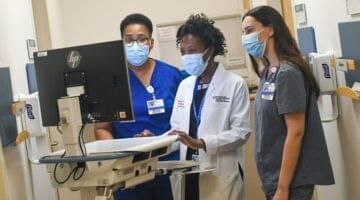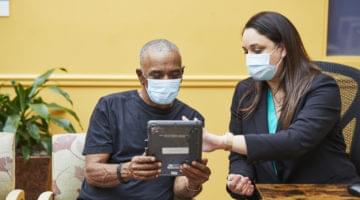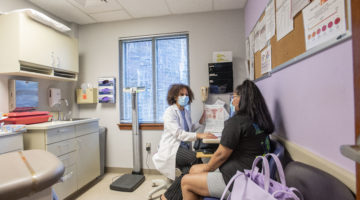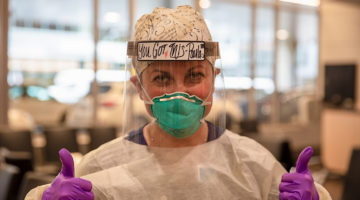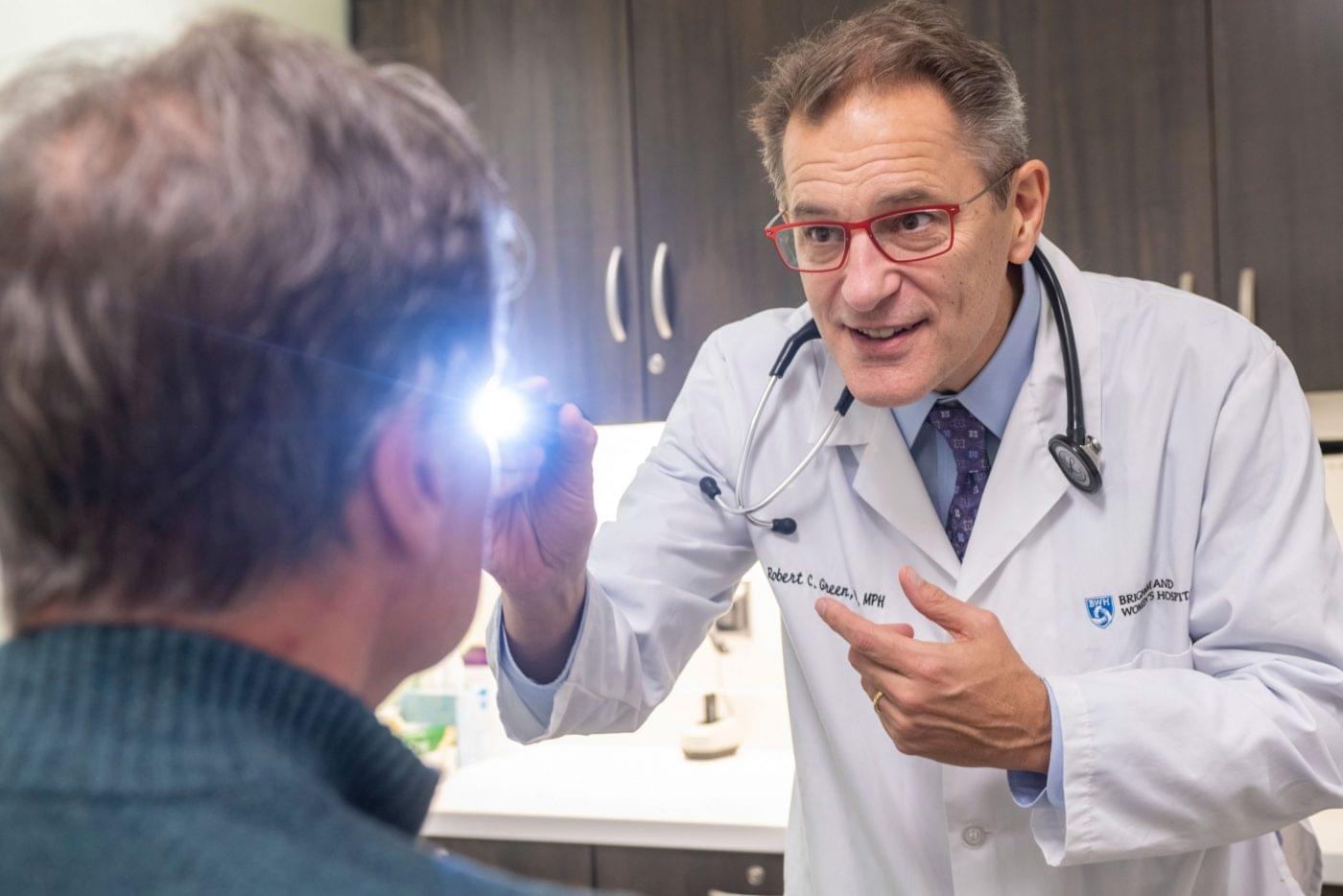
With growing awareness and curiosity about health and disease risk, more patients than ever are consulting the Preventive Genomics Clinic at Brigham and Women’s Hospital.
Since opening in 2019, the clinic remains the only one worldwide that is based in an academic medical center and serves healthy adults and children. Since the clinic went virtual in March, patients receive DNA test kits by mail and send their swabs in for analysis. The clinic’s genetic counselors and medical geneticists discuss findings with patients by video consult and then make recommendations for follow-up management.
The clinic is driven by evidence from the MedSeq Project, an NIH-funded study at the Brigham that was the first to explore using whole genome sequencing in healthy people. The study analyzed 5,000 genes in each participant’s DNA and found that 20% of apparently healthy adults had a strong genetic risk factor for disease. Some patients were already experiencing early signs of a condition undetected by standard medical care. These results have been replicated in the BabySeq Project studying healthy newborns, and the MilSeq Project studying active-duty military service members.
“We aren’t just talking about rare genetic diseases or individuals who knew they might be at risk based on their family histories,” says Robert Green, MD, MPH, who directs the clinic and led or co-led the MedSeq, BabySeq, and MilSeq Projects. “We are talking about healthy individuals who weren’t aware of their risk for something as common as cancer or heart disease. This is game changing.”
Stay up to date on preventive genomics at the Brigham by following @Genomes2People on Twitter and Instagram.


